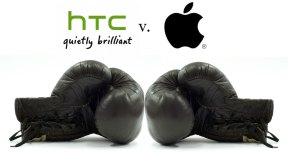
Apple’s Steve Jobs has
resigned from his position as CEO and Apple has just
announced that COO
Tim Cook has taken over as CEO.
As COO, Cook was responsible for all of the company’s worldwide sales and operations, including end-to-end management of Apple’s supply chain, sales activities, and service and support in all markets and countries. He also headed Apple’s Macintosh division and plays a key role in the continued development of strategic reseller and supplier relationships, ensuring flexibility in response to an increasingly demanding marketplace.
Before joining Apple, Cook was vice president of Corporate Materials for Compaq and was responsible for procuring and managing all of Compaq’s product inventory. Previous to his work at Compaq, Cook was the chief operating officer of the Reseller Division at Intelligent Electronics. Cook also spent 12 years with IBM, most recently as director of North American Fulfillment where he led manufacturing and distribution functions for IBM’s Personal Computer Company in North and Latin America.
Jobs will be Chairman of the Board of Apple and Cook will take a position on the board as CEO. Jobs actually submitted his resignation to the Board today and ‘strongly recommended’ that the Board name Tim Cook as CEO.
Jobs’ previous medical history includes Pancreatic cancer as well as a liver transplant. In 2004, Jobs contracted Pancreatic Cancer, which he beat. Then Jobs underwent a liver transplant in 2009, and also made a full recovery. During Jobs’ absence in 2009, then COO Tim Cook took over Apple’s day-to-day activities.
The full release is below:
Apple’s Board of Directors today announced that Steve Jobs has resigned as Chief Executive Officer, and the Board has named Tim Cook, previously Apple’s Chief Operating Officer, as the company’s new CEO. Jobs has been elected Chairman of the Board and Cook will join the Board, effective immediately.
“Steve’s extraordinary vision and leadership saved Apple and guided it to its position as the world’s most innovative and valuable technology company,” said Art Levinson, Chairman of Genentech, on behalf of Apple’s Board. “Steve has made countless contributions to Apple’s success, and he has attracted and inspired Apple’s immensely creative employees and world class executive team. In his new role as Chairman of the Board, Steve will continue to serve Apple with his unique insights, creativity and inspiration.”
“The Board has complete confidence that Tim is the right person to be our next CEO,” added Levinson. “Tim’s 13 years of service to Apple have been marked by outstanding performance, and he has demonstrated remarkable talent and sound judgment in everything he does.”
Jobs submitted his resignation to the Board today and strongly recommended that the Board implement its succession plan and name Tim Cook as CEO.
As COO, Cook was previously responsible for all of the company’s worldwide sales and operations, including end-to-end management of Apple’s supply chain, sales activities, and service and support in all markets and countries. He also headed Apple’s Macintosh division and played a key role in the continued development of strategic reseller and supplier relationships, ensuring flexibility in response to an increasingly demanding marketplace.

 After confirming that it is looking into
After confirming that it is looking into 

